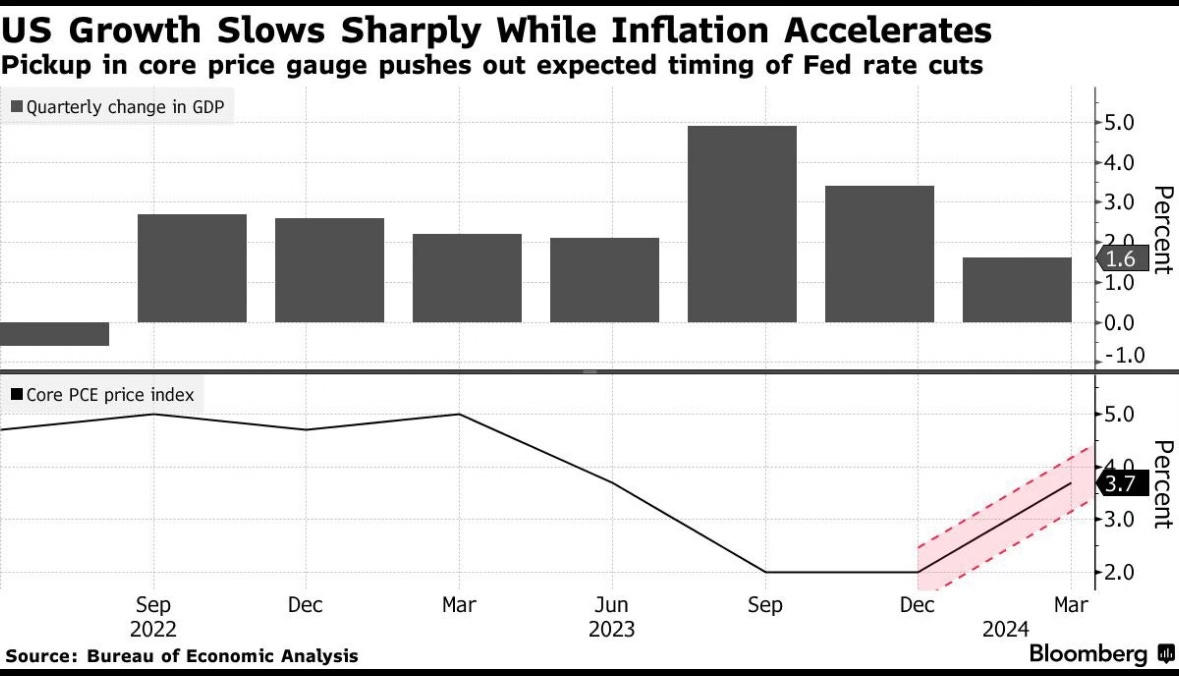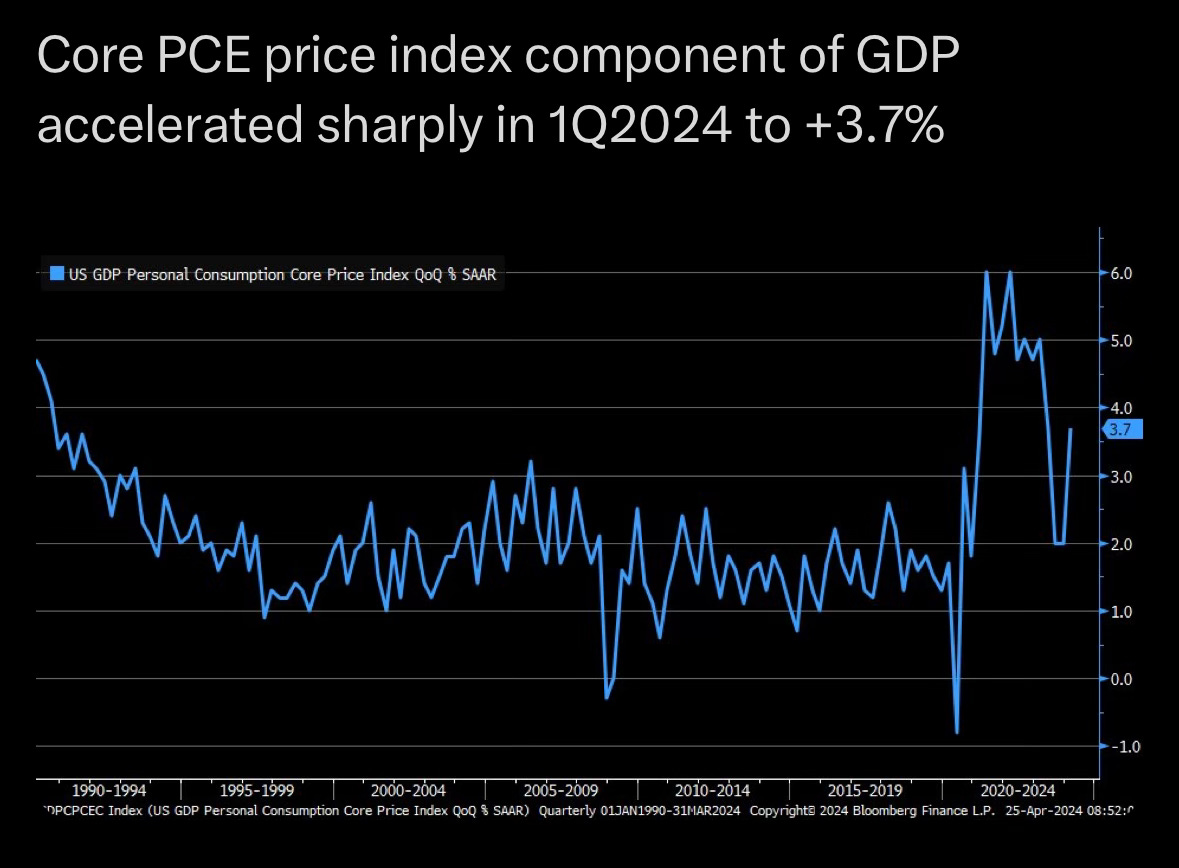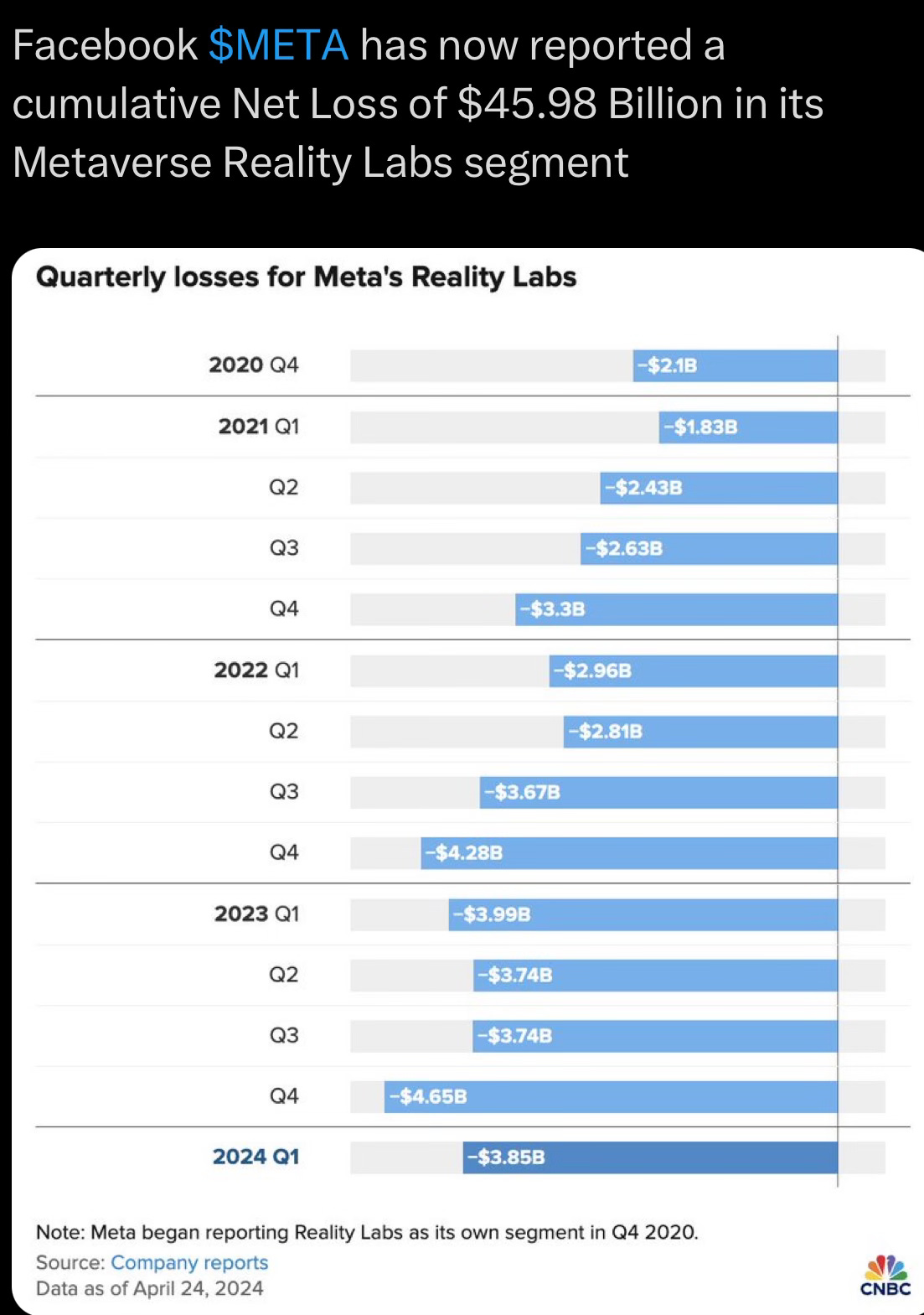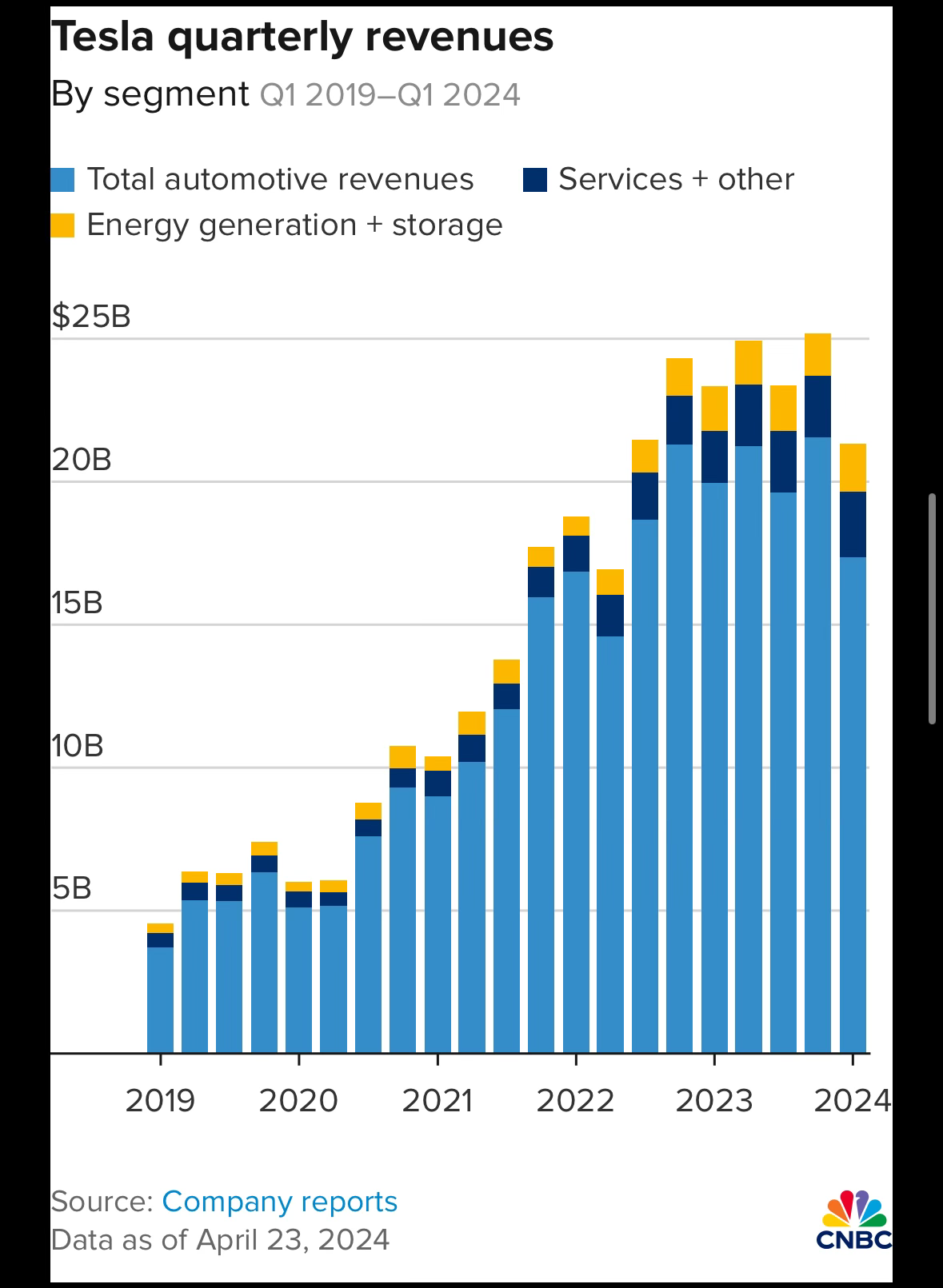Intro: How Inflation Makes Nominal Numbers Fall Down
In the world of finance and economics, the interplay between stock prices and actual earnings is a constant source of scrutiny, akin to the introspective themes found in Kanye West's song "All Falls Down" when adjusting for inflation. Recent revelations regarding GDP, inflation, and the lackluster earnings of companies like Tesla, Texas Instruments, and Meta paint a sobering picture of potential challenges ahead, invoking the poignant imagery of things falling apart.
GDP Falls Down in Q1
The unveiling of the first-quarter GDP figures at a mere 1.6% growth, adjusted for inflation, has ignited a storm of concern and apprehension reminiscent of the 1970s stagflation. Wall Street analysts' lofty expectations of a 2.5% growth rate were shattered against the stark reality exposed by the coastal journal's relentless tracking of inflation data through the Cleveland Fed PCE inflation casting, forecasting a menacing 3.5% inflation rate for the same period.
Why were most people off on their estimates? The harrowing truth lies in the inflation data itself, a staggering 3.7% surge that paints a grim portrait of an economy caught in the suffocating grip of rising prices. What appears as growth on paper is, in fact, a deceptive illusion fueled by inflated costs for stagnant goods and diminishing services.
As gas prices soar by a staggering 30% across the nation since January, the echoes of an impending inflation crisis reverberate through every sector. The mere talks of interest rate cuts, once heralded as a beacon of hope, now pale in comparison to the stark reality of inflation re-accelerating with unrelenting fervor. The Federal Reserve's dilemma now as market sentiments price in the bleak prospect of a solitary rate cut, possibly by December 2024, or worse yet, no cuts at all but rather ominous rate hikes in response to the relentless inflationary surge. The Federal Reserve's preferred PCE inflation report, a chilling 2.8% year-over-year, further compounds this narrative of economic decay.
The three-month annualized change for core PCE, a staggering 4.4% surge in March alone, catapults us into the abyss of economic turmoil. This figure, nearly 100% higher than the Federal Reserve's timid target of 2%, paints a dire picture of an economy hurtling towards the brink.
Amidst all these tumultuous numbers and dire predictions, the sentiment encapsulated by Kanye West's haunting lyrics, "All Comes Down," becomes a chilling prophecy. The facade of economic growth crumbles in the face of rampant inflation, revealing the stark truth of an inflationary recession lurking ominously on the horizon.
Texas Instruments AI Chips Falling Down
In the tumultuous realm of semiconductors, Texas Instruments' recent -12.7% revenue decline has sent shockwaves through the industry, akin to the dramatic collapse of a once-inflated bubble. This staggering drop falls drastically short of analyst estimates, serving as a stark reminder of the fragility underlying the AI chip market's euphoric rise.
Amidst the cacophony of technological advancements and AI hype, Texas Instruments, a global semiconductor titan, finds itself grappling with a stark reality check. The so-called "AI chip bubble," characterized by lofty expectations and exuberant valuations, now faces the sobering truth of market forces and demand dynamics.
As Kanye West's poignant lyrics echo in the backdrop, the symbolic unraveling of this bubble mirrors the broader challenges in the semiconductor sector. What was once hailed as a beacon of innovation and potential now confronts the harsh realities of supply-chain disruptions, shifting consumer preferences, and competitive pressures.
Texas Instruments' struggles, despite its top-tier position globally, underscore the nuanced nature of demand in the AI chip market. The allure of cutting-edge technology and transformative capabilities must now contend with the practicalities of market acceptance, sustainable growth, and financial viability.
In this narrative of "things falling apart," investors and industry observers alike are forced to confront the aftermath of an AI chip bubble burst. The lessons learned are invaluable, reminding us of the inherent risks in speculative fervor and the importance of grounded, long-term strategies in navigating volatile market landscapes.
Metaverse Falls Down back to Reality
Meta's recent earnings report sent shockwaves through financial markets, exposing the stark reality of overvaluation. With a price-to-earnings ratio of 35, the stock's inflated value teetered on the brink of collapse, revealing a house of cards built on speculative fervor.
Despite an in-line earnings report, Meta's optimistic sales outlook for the second quarter failed to dispel doubts. Expected sales of $36.5 billion to $39 billion signaled growth, but fell short of analysts' more bullish estimates, highlighting a disconnect between market expectations and actual performance.
As CEO Mark Zuckerberg discussed investments in areas like mixed reality, the company's Reality Labs unit reported staggering losses, contributing to total losses surpassing $45 billion. This relentless pursuit of innovation at the expense of profitability underscored Meta's overextended position in a competitive landscape.
The accelerating stock sell-off reflected the market's growing realization of Meta's overvaluation. With a discount rate of 5% for bonds, Meta's shares faced the sobering prospect of potential stagnation and underperformance in the foreseeable future.
Meta's dramatic fall serves as a cautionary tale, urging stakeholders to reassess their perceptions and navigate the volatile terrain of financial markets with caution.
Tesla Entire Business is Falling Down
The full article and earnings analysis is for paid subscribers, to continue to read and support The Coastal Journal consider being a paid subscriber, thank you.
Keep reading with a 7-day free trial
Subscribe to The Coastal Journal to keep reading this post and get 7 days of free access to the full post archives.








